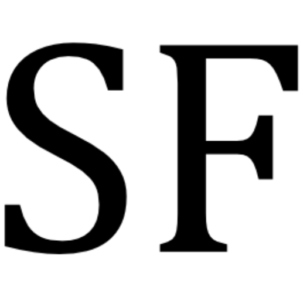We can decide now what a post-pandemic Canada will look like
An overused expression originally attributed to Winston Churchill is that we should never waste a good crisis. The fallout from the pandemic has made it blindingly clear that if ever there were a time to follow that counsel, it’s now.
A recent article by Peter C. Baker in the Guardian, titled “We Can’t Go Back to Normal: How Will Coronavirus Change the World?” suggested that, in a crisis, what is broken in society becomes apparent, and “the fundamental reality of that community is laid bare. Who has more and who has less. Where the power lies. What people treasure and what they fear.” While this can be extremely damaging, he suggests that when the “fabric of normality” is ripped open, we can “glimpse possibilities of other worlds,” which might have seemed impossible or unachievable before.
The pandemic has affected us all. Canada is in lockdown, health systems are stretched — to the point of breaking, in some cases — and deaths around the world have surpassed two million. Economies are in trouble, with unemployment its highest since the 1930s. National government budgets are in the red, while global alliances and supply chains are affected or in jeopardy. The failure of our society to meet its obligations to its senior citizens is clear. Economic, gender, and racial inequalities and their consequences are in sharp relief, as COVID-19 disproportionately affects the vulnerable among us, while the wealth of the world’s super-rich has increased significantly.
But COVID is just one of several existential crises we face; U.S. President Joe Biden listed six of them in his inauguration speech in January. In Canada, we are vulnerable to far-right extremism and terrorism, while the pandemic has laid bare the extent (and cost) of growing inequities and systemic racism in society. The world is facing down a climate-change emergency. All these are interrelated and none of them new. One would be concerning, but this number is just plain terrifying.
At the same time, debates rage over how and when we’ll get back to normal, what that might look like, what’s important to us — and, most challenging, the importance of the economy versus the lives and health of individuals and communities. It’s increasingly clear, however, that it will be a long haul and a continued time of extreme uncertainty, as we struggle with additional waves of infection and variants of the virus.
At this point, we can’t know what the “new normal” will be, even though much has been written about how we must “build back better.” As we weave the fabric of our lives back together, will we act on what we’ve learned during the pandemic? Will we emerge with more inclusive priorities and aspirations? Will we act on the climate-change emergency? Will we be prepared to do the hard work to fix the extreme inequalities in society, the consequences of which we’ve now seen first-hand? Will we consider a society in which continual economic growth is recognized for the mathematical impossibility and lunacy that it is? Or will we be so relieved/broken/desperate that we make a grab for what we think is the closest to the old ways, ignoring the existential challenges facing us, and our hard-won knowledge of how society is failing many of its members?
There’s no magic button that will reset our values, make everything right, make us whole again, and turn us into more responsible inhabitants of the planet. Nor will it be a binary or coherent outcome. In a world in which individuals, governments, businesses, and civil society all need to figure out what’s going on, what will happen, and what they need to — or can — do about it, the result will be a complex mix that none of us can predict.
While the uncertainty isn’t going away, it appears that cornerstone values like safety and security are being increasingly prioritized. Government has a role to play when the pandemic is over, and will need to demonstrate to Canadians that it’s up to the challenge in the longer term, not just while it’s a political “hot file.” Civil society, the private sector, and citizens alike will also have important roles, and must make the tough decisions and choices that such challenges demand.
And for those who value the health of a strong economy the most, countries with safe, transparent, and equitable working conditions within their public institutions and government departments will come out on top.
If there were ever a time for honest and tough conversations — and choices — about who we are and want to be as a country, this is it. Shame on us if we don’t seize the opportunity.



